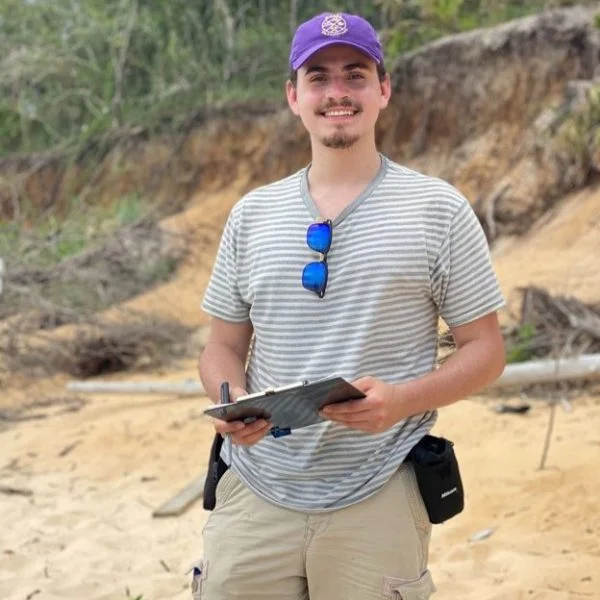Featured Image Description: Chief Devon Parfait of the Grand Caillou/Dulac Band of Biloxi-Chitimacha-Choctaw works to prevent displacement and build grassroots community power in the face of environmental challenges. (Photograph by Devon Parfait)
My whole story is a story of diaspora and displacement. We lost everything but what we had on our backs. That’s why tribal communities are on the front lines of this crisis—because they were forced to the furthest ends of Louisiana, to places some thought were unlivable. — Chief Devon Parfait, chief of the Grand Caillou/Dulac band of Biloxi Chitimacha Choctaw
Host Brenden Parfait takes us to his homeland in the heart of the bayou in Louisiana, where his indigenous community is standing against the forces of climate change. He explores the ongoing fight to preserve their traditions amidst the devastating land loss threatening their way of life.
For centuries, the Grand Caillou/Dulac Band of Biloxi-Chitimacha-Choctaw have called the Louisiana bayou home. But as climate change accelerates land loss and displacement, tribal leaders are fighting to preserve their land, culture, and future.
We hear from Elder Chief Shirell Parfait-Dardar and Chief Devin Parfait, who share their deeply personal stories of resilience, forced migration, and environmental stewardship. As Chief Shirell reminds us: We need to all work together so we can become better ancestors.
Join us as we explore the frontline battle for climate justice and what it means to reclaim and protect the land for future generations.
This podcast series serves as a final grant report for Convergence Partnership’s most recent grantee cohort. Through the voices of our grantees and their partners, we explore how civic narrative, mutual aid, and economic power shape the fight for racial justice and health equity.
